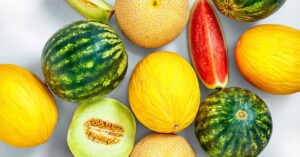Some well-known types of sparkling wine include Champagne, Prosecco, and Cava. Lesser-known varieties are Spek and Espumante.
From crisp and refreshing options to rich and complex flavors, there are plenty of sparkling wines to choose from.

So why not raise a glass to the good life and explore the world of sparkling wine? There’s nothing quite like a glass of bubbly to add some sparkle to a celebratory occasion.
What Is Sparkling Wine?
Sparkling wine is a type of wine that has carbonation, resulting in bubbles and effervescence.
It’s made through a process called secondary fermentation. In this process, carbon dioxide is produced and trapped within the wine, creating the characteristic fizz.
Sparkling wine can be produced using various grape varieties.
Some of the most famous types are Champagne (from the Champagne region of France), Prosecco (from Italy), and Cava (from Spain).
The carbonation in sparkling wine can range from delicate and fine bubbles to more vigorous and lively effervescence. This all depends on the winemaking process.
Sparkling wine is typically enjoyed as a celebratory drink or for special occasions.
But you can also enjoy it as an aperitif or paired with a variety of foods. It’s especially delicious with seafood, cheeses, and desserts.
Sparkling wine should be served chilled to enhance its refreshing qualities and preserve its effervescence.
Types of Sparkling Wines
1. Champagne

Champagne is a renowned type of sparkling wine originating from the Champagne region of France.
It’s made using a traditional method known as méthode champenoise or méthode traditionnelle. This involves a secondary fermentation taking place in the bottle. It creates bubbles and produces the wine’s distinctive effervescence.
Champagne often exhibits a complex and layered taste profile. It has notes of citrus, apple, toast, and brioche. It can range from bone-dry (Brut Nature) to sweet (Demi-Sec), catering to different preferences.
The bubbles in Champagne tend to be fine and persistent, contributing to a creamy and luxurious mouthfeel.
Champagne is considered a premium sparkling wine used on special occasions.
2. Prosecco
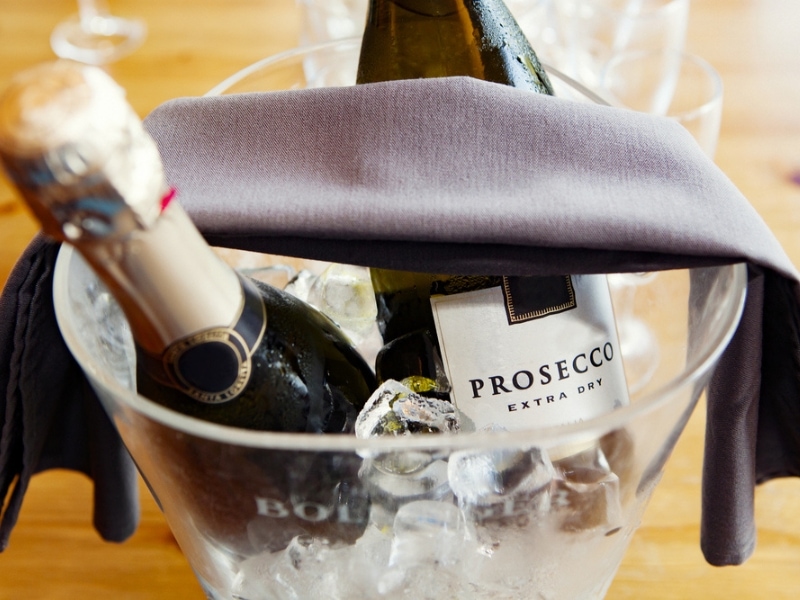
Prosecco is a popular sparkling wine hailing from the Veneto region of Italy. It’s primarily made using the Glera grape, although other grape varieties may be included.
Unlike Champagne, Prosecco is produced using the Charmat method. It uses a secondary fermentation occurring in stainless steel tanks. Therefore, you get larger and more delicate bubbles.
Prosecco exhibits a light and fruity flavor profile, often featuring notes of green apple, pear, citrus, and floral undertones. It’s known for its refreshing and crisp character, with a touch of sweetness that can vary from dry to slightly sweet.
Prosecco is a versatile sparkling wine. Enjoy it as an aperitif or pair it with lighter fare such as salads, seafood, and fresh fruits.
It offers an accessible and approachable option for those seeking a lively and easy-drinking sparkling wine.
3. Cava

Cava is a type of sparkling wine originating from Spain, primarily produced in the Catalonia region. It’s made using the traditional method, similar to Champagne, where the secondary fermentation takes place in the bottle.
Cava is crafted from indigenous Spanish grape varieties such as Macabeo, Xarello, and Parellada. However, Chardonnay and Pinot Noir can also be used.
Cava offers a range of styles, from dry to sweet, catering to different preferences. It often showcases flavors of citrus, apple, and toasted bread, with refreshing acidity and fine bubbles.
Cava is a popular choice for celebrations and is enjoyed as an aperitif or paired with various Spanish dishes.
4. Crémant
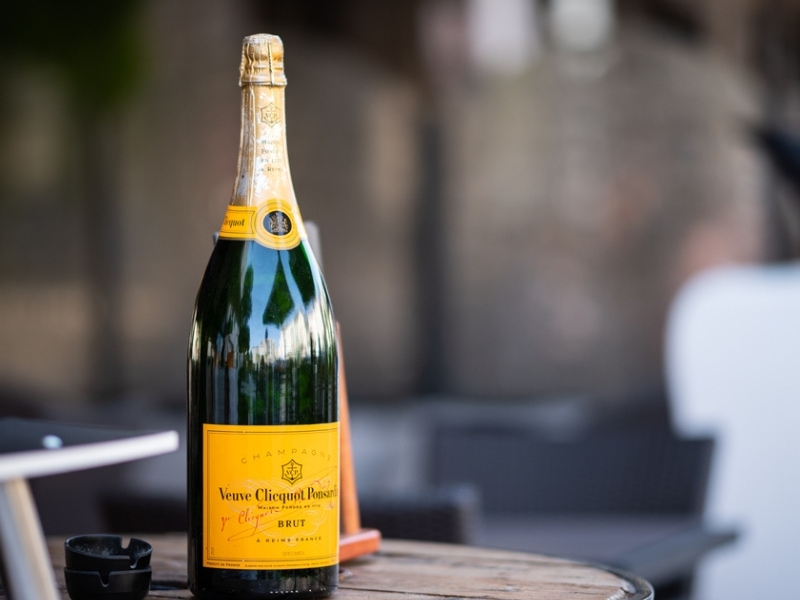
Crémant is a type of sparkling wine produced in various French regions outside of Champagne. The most famous regions are Alsace, Loire Valley, and Burgundy. Each Crémant-producing region has its own unique characteristics. This unique quality allows for variations in taste profiles and grape varieties used.
Professionals make it using the traditional method, similar to Champagne, involving a secondary fermentation in the bottle.
Crémant offers a range of styles, including Crémant d’Alsace, Crémant de Loire, and Crémant de Bourgogne.
The taste profile varies depending on the region. But generally, Crémant showcases a crisp and lively character with notes of apple, citrus, and toast.
It’s often an affordable alternative to Champagne, offering excellent value and elegance.
5. Sekt
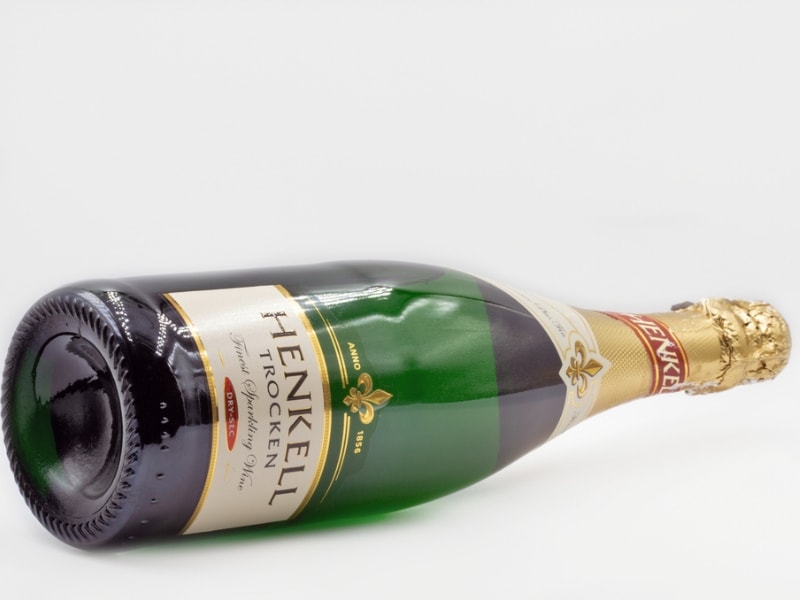
Sekt, the German term for sparkling wine, encompasses a wide range of sparkling wines produced in Germany.
It can be made using various grape varieties. But the most popular options are Riesling and Pinot Noir due to their suitability for sparkling wine production.
The production methods for Sekt can vary. Some are made using the traditional method. Others undergo tank fermentation, where the secondary fermentation takes place in large tanks.
Sekt offers a diverse array of styles, ranging from bone-dry (trocken) to semi-sweet (halbtrocken) and sweet (süß).
It has a fresh and fruity character, often displaying flavors of apple, peach, and floral notes.
In German culture, it’s often savored as an aperitif. Families serve it during celebrations or pair it with traditional German cuisine.
Its vibrant and lively character adds a touch of effervescence to the dining experience. It’s no wonder why sparkling wine enthusiasts love it so much.
6. Franciacorta
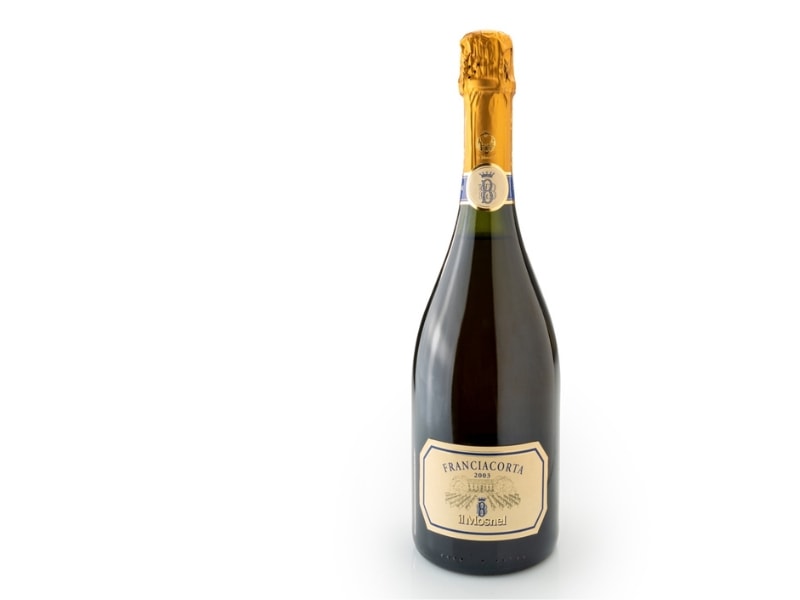
Franciacorta is an Italian sparkling wine produced in the Lombardy region. It’s also made using the traditional method.
Commonly used grape varieties are Chardonnay, but Pinot Noir and Pinot Blanc are also permitted.
Franciacorta undergoes a secondary fermentation in the bottle, resulting in refined and persistent bubbles.
It typically exhibits a rich and complex flavor profile. It’s enriched with notes of citrus, tropical fruits, toasted almonds, and a mineral undertone.
Franciacorta is known for its elegance, depth, and longevity. It’s considered one of Italy’s finest sparkling wines.
7. Espumante
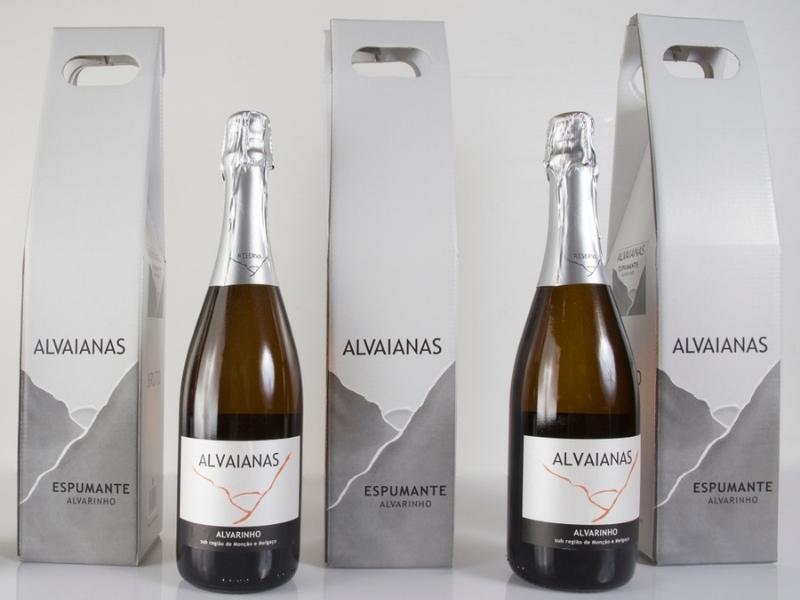
Espumante is a term used in Portugal and Spain to refer to sparkling wine. In Portugal, it’s commonly associated with sparkling wines from the Bairrada and Douro regions.
Espumante can be produced using different methods, including the traditional method and tank fermentation.
The taste profile varies depending on the grape varieties used. Flavors range from crisp and citrusy to more complex and toasty.
Espumante is a versatile sparkling wine. Enjoy it on its own or pair it with tapas and traditional Portuguese or Spanish dishes.
8. Sparkling Rosé

Sparkling Rosé is a type of sparkling wine that gets its pink color from contact with grape skins during fermentation. As with most other sparkling wines, you can either make it using the traditional or tank fermentation methods.
Sparkling Rosé offers a range of flavors and styles, from dry and crisp to fruity and off-dry (my personal fav). It typically exhibits notes of red berries, cherries, and floral aromas.
With its vibrant appearance and refreshing taste, Sparkling Rosé is a popular choice for any occasion.
9. Pétillant Naturel
Pétillant Naturel, often referred to as Pét-Nat, is a type of sparkling wine made using the “méthode ancestrale.” It’s produced by bottling the wine before the fermentation is complete. This allows the carbonation to naturally occur in the bottle.
Pét-Nat is typically unfiltered and can display a cloudy appearance. It offers a range of flavors and styles. Dry to slightly sweet, it showcases vibrant and lively bubbles.
Pétillant Naturel wines are known for their natural and rustic character.
Flavors commonly include crisp fruits, floral notes, and yeasty undertones.
10. Trentodoc
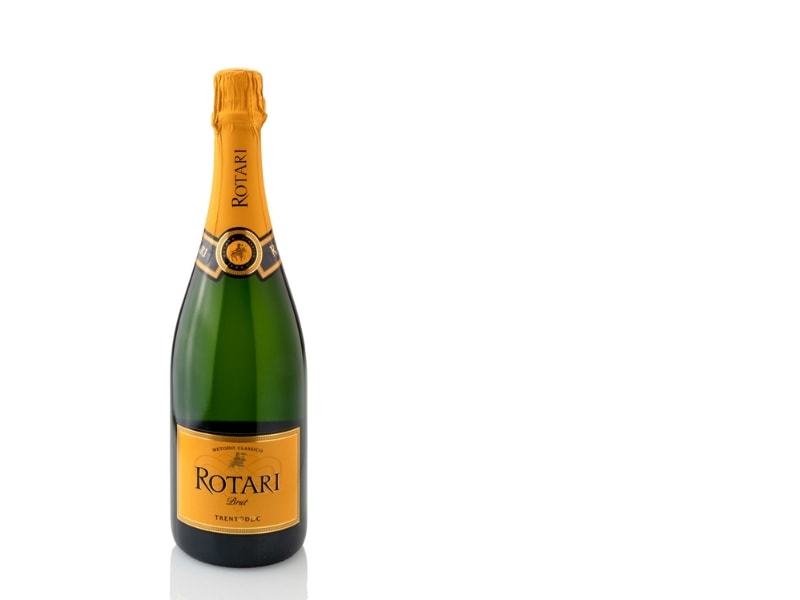
Trentodoc is an Italian sparkling wine produced in the Trentino region using the traditional method. Winemakers love Chardonnay, Pinot Noir, and Pinot Meunier grapes for this wine.
Trentodoc wines undergo a secondary fermentation in the bottle and are aged on their lees to develop complexity. They exhibit a range of flavors, including citrus, apple, and white flowers. There’s also a delicate mineral undertone.
Trentodoc wines are known for their elegance, fine bubbles, and crisp acidity. They’re considered among Italy’s top sparkling wines. Italian families enjoy them as both an aperitif and a companion to various dishes.










